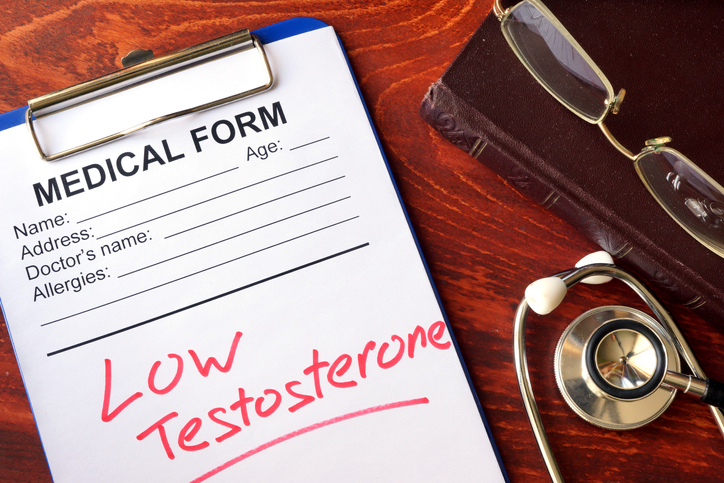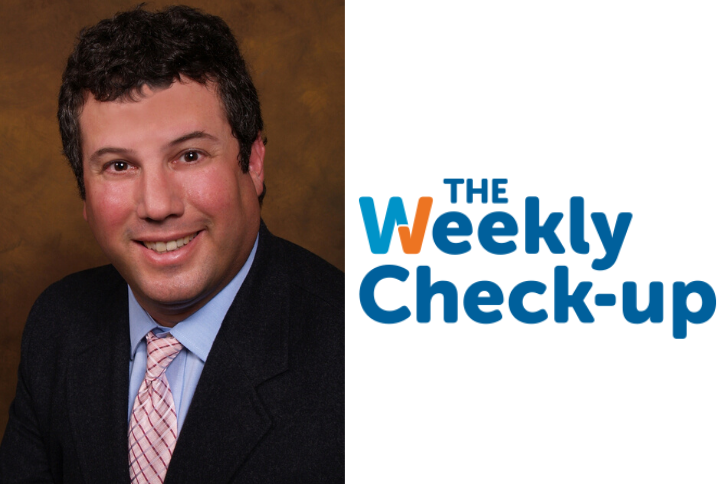How to Manage Testosterone Deficiency
By Dr. Harry Rutland, M.D., F.A.C.S.
Discussion and treatment of testosterone deficiency have become more common in our daily practice. There is more public awareness of “low T” and testosterone levels are more checked now than ever before.
However, there is a difference between low testosterone levels and what is considered testosterone deficiency. Low testosterone blood levels do not always cause symptoms. A patient with testosterone deficiency has low testosterone levels in addition to signs or symptoms of low testosterone.
Recent data shows that many men suffer from low testosterone levels but are not treated or evaluated. However, there are also men who are on testosterone therapy that do not actually meet the criteria for treatment and do not need to be on therapy.
To understand why, we’re explaining the basics of testosterone deficiency, including symptoms, treatment details, and more.
Why Does Testosterone Deficiency Happen?
Testosterone is primarily produced by the testicles and levels peak in late teens the to early 20s. In most men, there will be a gradual decline in testosterone level as they age and that decline can begin as early as 30 years of age. Testosterone level can be checked by performing a simple blood test in your provider’s office.
Symptoms of Testosterone Deficiency
Symptoms of low testosterone are variable but commonly include:
- low energy
- low libido (decrease in sex drive)
- erectile dysfunction
- weight gain
- decreased strength and endurance
- depression
- decreased muscle mass
In addition to these symptoms, there is evidence that men with low testosterone levels may be at higher risk of cardiovascular issues and osteoporosis (weakening of bones). Other medical conditions can also cause these symptoms so full medical evaluation is recommended to determine why a man is having symptoms.
The current recommendation before treatment is that two testosterone levels are found to be low in addition to a patient having symptoms. There are other lab values that also need to be checked before initiating testosterone therapy and as long as a patient remains on therapy.
How to Manage Testosterone Deficiency
Management of testosterone deficiency includes lifestyle changes as well as medical therapy. Lifestyle modifications can increase natural testosterone levels and should be followed even in patients who are on testosterone therapy.
Lifestyle modifications that can improve testosterone levels include:
- Regular exercise including some form of resistance training or weight lifting
- Get adequate sleep. Consider evaluation for sleep apnea in some patients.
- Maintain healthy weight
- Have a balanced, healthy diet.
- Try to decrease daily stress.
Is It Safe?
Many men are interested in an evaluation of testosterone deficiency but have concerns over the safety of testosterone therapy. Patients should plan to discuss risks and benefits of testosterone therapy with their medical provider. Recent studies show no definitive evidence of an increase in prostate cancer or cardiovascular events while on testosterone therapy.
Testosterone can be supplemented safely but patients should look at testosterone deficiency like any other medical condition. This means a patient on testosterone therapy will need to be monitored by their medical provider regularly.
Patients on testosterone therapy need to have occasional blood work to make sure testosterone levels and other labs are stable. Typical monitoring interval is about every 6 months but may vary depending on stability and recommendation of your provider.
When patients are not followed regularly there are risks. Studies show that approximately half of the men currently being treated for testosterone deficiency are not seen regularly by their medical provider and do not have labs checked frequently enough.
How Long Do Results Take?
When testosterone deficiency is appropriately managed, patients should experience improvement in symptoms but improvement can take several months. In some cases, it might take 3-6 months for symptom improvement.
Who Shouldn’t Receive Testosterone Deficiency Therapy?
While there are exceptions, current management guidelines generally recommend the following men not receive testosterone therapy:
- men who still plan to have children
- men who have had any significant cardiovascular event in the past 3-6 months
- men who have prostate cancer
There are many options for supplementing testosterone. The most common options are topical medications, injectable forms of testosterone, and implanted testosterone pellets. Your Georgia Urology provider will be able to discuss management options in detail.
In summary, many men have testosterone deficiency and there are simple tests to determine which patients meet criteria for testosterone deficiency. Patients with testosterone deficiency can benefit from lifestyle modifications and treatment with testosterone therapy. Testosterone can be safely supplemented but patients need to have lab work and see their medical provider every 6-12 months.
If you have any more questions, click here to schedule an appointment with any of our expert urologists.









